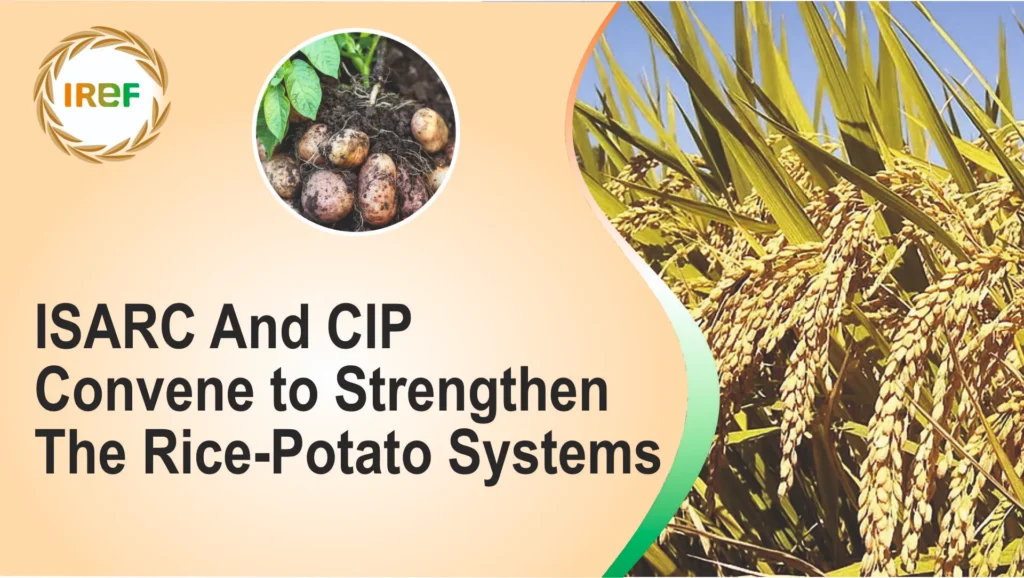In Varanasi, the International Rice Research Institute South Asia Regional Centre (ISARC) and the International Potato Centre (CIP) recently joined hands to convene a multi-stakeholder consultation as an initiative to change the rice-potato cropping systems into sustainable and climate-adaptive models.
The consultation emphasised improving a prototype innovation designed to enable Potato Zero Tillage with Rice Straw Mulch (PZTM), a conservation agriculture method that utilises rice straw as natural mulch for potato cultivation, discarding the requirement for intensive tillage.
The discussion was about a combine harvester prototype that consolidates rice harvesting and zero-till potato planting in a single mechanised pass, dealing with key bottlenecks in residue management and timely planting. The meeting brought together stakeholders from government bodies, CGIAR centres, private agri-tech firms, food processing companies, universities, and farmer groups. Uttar Pradesh the India’s largest potato-producing state and a significant rice producer, was identified as a main geography for piloting the innovation.
BL Meena, additional chief secretary, Horticulture, govt of Uttar Pradesh, expressed strong support for scaling up PZTM through convergence with existing horticulture and farm mechanisation schemes.
Sudhanshu Singh, Director of ISARC, stated that this consultation is unique, with farmers directly participating in machinery review and development. The prototype holds the potential to revolutionise Eastern India’s rice-potato systems by decreasing turnaround time, conserving water, and improving soil health.
Neeraj Sharma, Country Head of CIP, highlighted the role played by women farmers, regional disparities in mechanisation, and the urgent need to combat crop residue burning. He emphasised public-private partnerships and system-based innovations to increase sustainable potato production. The consultation brought together representatives from PepsiCo, McCain, Yanmar, Khalsa, researchers from Punjab University, and farmers from rice-potato growing states. Notably, discussions revolved around prototype design, field feasibility, and pathways to validation and scaling in the consultation.



